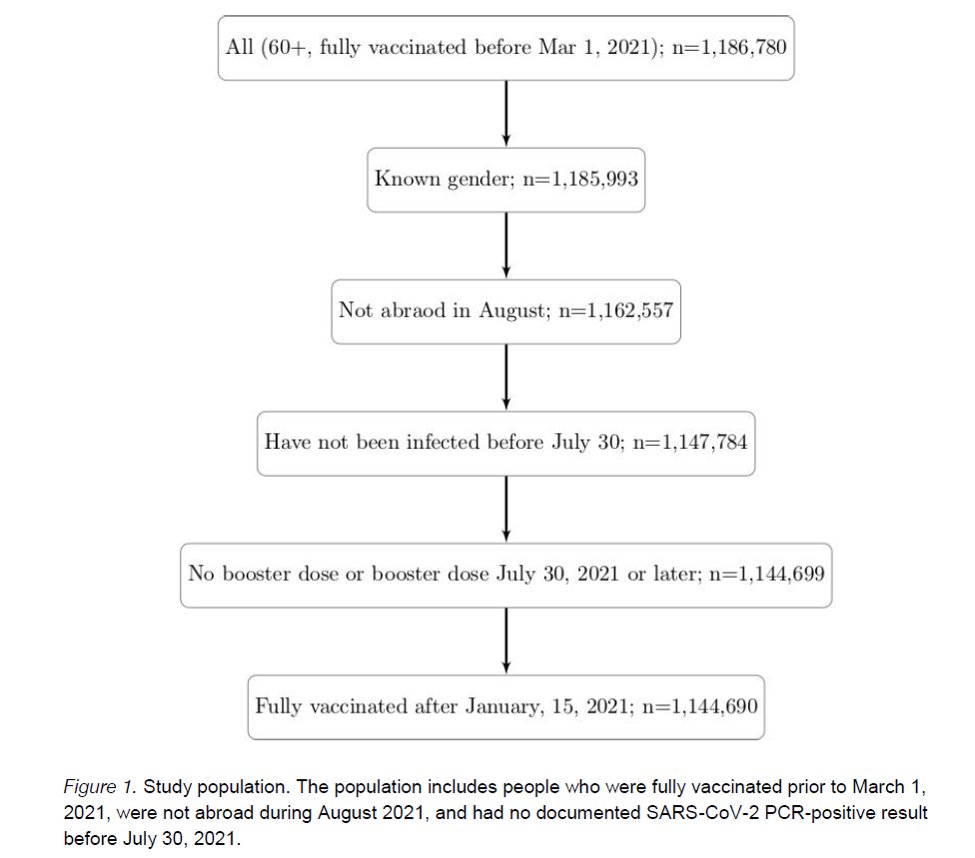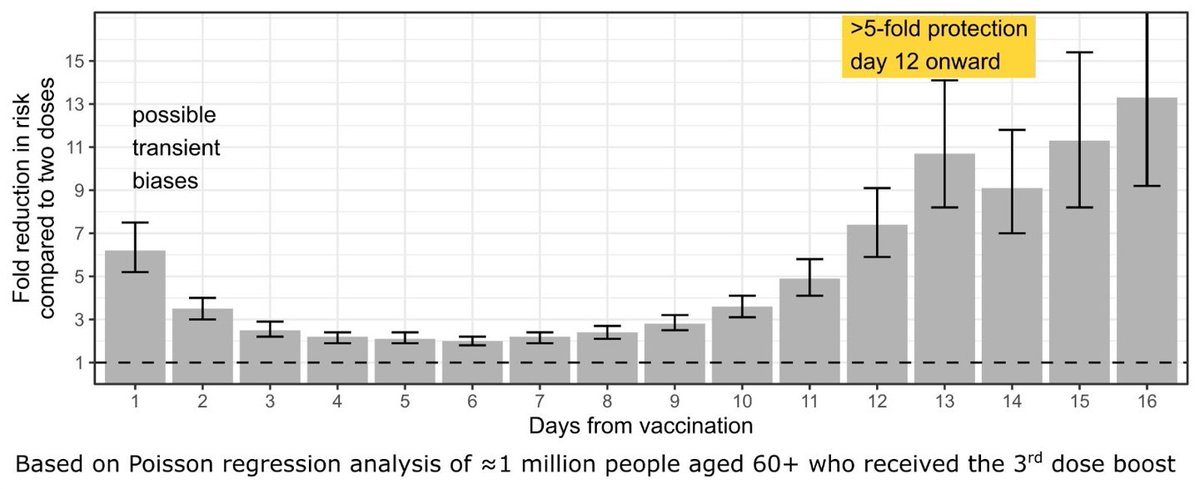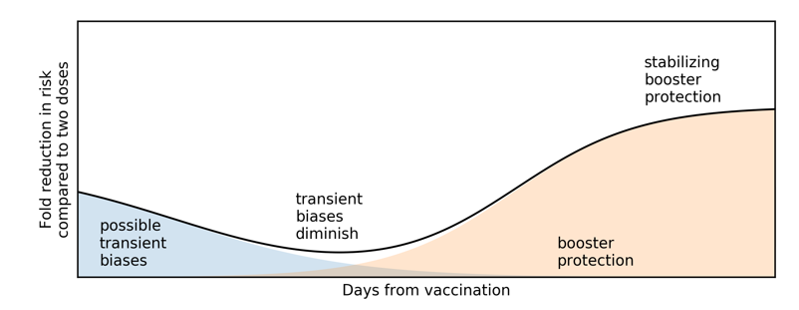
A new pre-print from a group of researchers in Israel shows very high efficacy of a booster dose gov.il/BlobFolder/rep…
TLDR - the booster seems to be working great! (thread)
TLDR - the booster seems to be working great! (thread)
Following the major outbreak and evidence that suggested a waning immunity effect, on July 30 Israel started to administer a 3rd dose of the Pfizer vaccine to the 60+ y/o population who had already been vaccinated with two doses for at least 5 months.
https://twitter.com/ofraam/status/1430165917393113089
The study followed >1 million people who were fully vaccinated before March, during the period of July 30-Aug 22. It compared the protection of people who received the booster to that of those who only received 2 doses (*not to unvacc). 

For each day, they compare the protection of the “no booster” and “booster” population. The cohort was dynamic - people transitioned from the “no booster” cohort to the “booster” cohort 12 days after receiving the third dose (cutoff based on immunological studies). 

The analysis controlled for several covariates: age (60-69, 70-79, 80+), gender, demographic group (General Jewish, Arab, ultra-Orthodox Jews), date of 2nd dose, calendar date (the study period is during an exponential growth, so exposure differs substantially between days).
The main result of the Poisson regression analysis is that the booster dose provides significant protection – an estimate of 11.4-fold (95% CI: [10, 12.9]) decrease in the relative risk of a confirmed infection. 

The results are best illustrated in this plot, which shows the days following the 3rd those (x-axis) and the fold reduction in risk compared to only receiving two doses (y-axis). The key observation is that from day 12 onward, they observe >5-fold increased protection. 

The shape of the plot might seem surprising - why are people much more protected on the first day? Why are they ~2-3-fold protected in the first days, when the vaccine should not still take effect? These can be the result of a behavioral bias >>
People are unlikely to get tested on the day of their vaccine (they probably postpone the vaccine if they aren’t feeling well), and if they feel bad shortly after the vaccine, they might assume it is a side effect of the vaccine, which would also lead to less testing (see Fig.) 

This suspicion of a behavioral bias is supported by the rate of testing after the booster, which shows a decrease for a couple of days immediately after receiving the booster dose, as seen in this plot 

The important point is that from day 12 onward, they observe a clear increase in protection, which is hard to explain simply with behavioral effects
But what if people who took the 3rd dose early are those who were more careful in the first place? This does not seem to explain the results, because people contributed to both cohorts (no booster/booster). Here's a sensitivity analysis looking at different vaccination periods 

To be even on the safer side, the authors also added a comparison between protection 4-6 days after the vaccine to protection 12+ days after. This provides a lower-bound estimate for protection (due to the behavioral bias in days 4-6), and it is still 4.7-fold protection
The paper also describes alternative analyses that use case-control matching techniques where individuals from the booster and no booster populations are matched based on similar characteristics. The protection rate estimations remain similar, around 10-fold protection.
They also find that the booster decreases relative risk of severe disease by 15.5-fold (95% CI: [10.5, 22.8]). This might be an underestimate, as it takes time to develop severe illness, such that some people from the booster cohort may have been infected prior to the booster.
In sum, these are very encouraging results, and in Israel the booster campaign has been extended, initially to the 50+ population, then 40+, then 30+, and now everyone who were vaccinated >5 months ago
Study was done by @MiloLabWIS @YairGoldberg1
@IsraelMOH @KalksteinNir
and several other researchers from the Hebrew university and Gertner Institute
@IsraelMOH @KalksteinNir
and several other researchers from the Hebrew university and Gertner Institute
• • •
Missing some Tweet in this thread? You can try to
force a refresh






